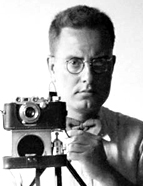

Orlando da Cunha Ribeiro was the son of a Viseu pharmacist who had a pharmacy in Lisbon in Rua da Escola Politécnica (São Mamede neighbourhood). His mother died when he was 5 years old and he was raised mostly by his maternal grandparents, Amélia, from Viseu, and Augusto Carvela from Chaves. He was therefore familiar in his childhood both with different parts of the countryside where his grandfather, who had eventually retired as a military major, was successively posted, and the environment of a Lisbon neighbourhood where the university buildings and the Imprensa Nacional [National Press] lined the Jardim Botânico [Botanical Garden]. Inhis Memórias [Memoirs] (2003), Orlando Ribeiro recalled how he had socialised with several intellectuals from an early age. On the recommendation of A. Celestino da Costa (1884-1956), one of his classmates’ father who would later become President of the Junta de Educação Nacional [National Education Council], Orlando Ribeiro was awarded small scholarships as of 1934 which offered him the opportunity to progressively discover the various regions of Portugal. In August 1935, he was invited to participate in a conference on a Holiday Cruise organised to show the country’s intellectual elite the wide and diversified colonial territories in Africa that were mostly unknown. He met Marcelo Caetano on this cruise who later assisted him in getting a position as lecturer of Portuguese in Paris, two years after obtaining his doctorate in Lisbon.
His intellectual curiosity had prompted him very early in life to complement the education he had received at the Faculdade de Letras de Lisboa [Faculty of Arts of the University of Lisbon] with diverse courses that opened new horizons and led to the practice of several research techniques. The introduction to Arabic lectured by Professor David Lopes (1867-1943), who had shown him the relevance of Portugal’s Islamic past, or his lessons with Swiss geologist Ernest Fleury (1878-1958), the only university professor in Lisbon who had encouraged him to do “fieldwork” and who had taught him to fill his notebook with notes and sketches, are two examples among others worth mentioning. During his youth he cultivated a quasi- filial relationship with the elderly Leite de Vasconcelos (1858-1941), whose moral and intellectual influence he carried with him throughout his life. Indeed, it was only in 1988 that the 10th and last volume of Leite Vasconcelos’s Etnografia Portuguesa [Portuguese Ethnography] was published by the Imprensa Nacional (Mestres, Colegas, Discípulos [Masters, Colleagues, Disciples], I, p. 87-374) thanks to Ribeiro’s persistent joint efforts with Manuel Viegas Guerreiro (1912-1997), his colleague and friend.
